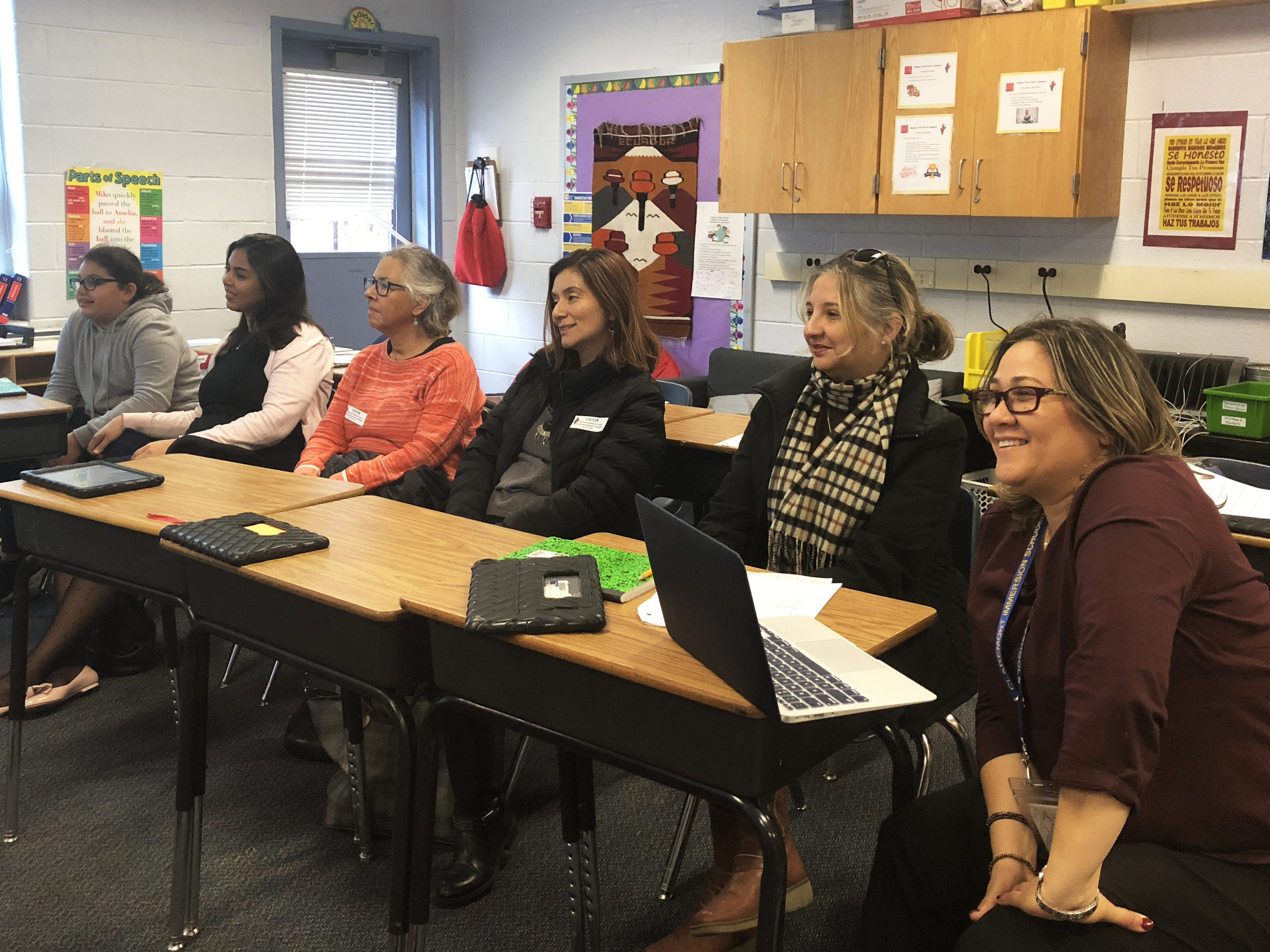Everyone Has an Important Story to Tell: Immigrant Narratives in a Fifth Grade Classroom
By Laura Mufson and Wendy Bermúdez
Our classrooms need to be places where children from all backgrounds can find books with stories about people like them and their family as well as people who are different from them. Exposing students to diversity in literature can empower them to be authors of their own stories as well.
At Claremont Immersion Elementary School (Arlington Public Schools), fifth grade teacher Laura Mufson taught students about the importance of telling personal narratives and what we can learn from other people’s stories. When asked why she decided to do this type of project, Ms. Mufson replied,
I was inspired by the stories my mom used to tell me about coming to the United States at a young age and the impact that had on me, my perspective of the world, and the immigrant experience. Then, at a professional development seminar over the summer, I was introduced to a podcast called Storycorps, which tells memorable stories of people’s lives all over the world. I decided to integrate this resource so that my students could see that everyone has an important story to tell, and that we can be impacted by these stories in different ways.
Ms. Mufson started the unit by showing different Storycorps videos, and she was amazed with the positive responses from her students. They were eager to watch more stories of different types of people, and they had very emotional reactions to the hardships people had to endure in their lives.
In their bilingual classroom, students learned how to write a personal narrative about a small moment in their own lives in English class. After this unit, they transferred the writing skills to Spanish class. Ms. Mufson invited four parents and two teachers, all Latino immigrants, to visit the class and be interviewed about the difficult moment in their life when they came to the United States. Students learned how to conduct interviews and created a list of questions that would guide them in collecting information to write the stories of the immigrants. All of the personal narratives discussed issues of immigration, obstacles in learning English, and the importance of education.
Students recorded the interviews, then used their recording to listen to and transcribe the story. All students typed out the personal narrative of their interviewee, then illustrated the story using Wixie, a tool for illustrating and publishing stories, then finally recorded themselves reading the story aloud.
Students had a publishing party to present their personal narratives to the class and to other guests, including the interviewees. “We hope to share these stories in order to teach others about the importance of confronting hardships, perseverance, and hard work,” said Ms. Mufson.
After the culmination of the project, Ms. Mufson used a book called Voces Sin Fronteras, which she found while searching on Social Justice Books, in order to connect this project to the real world. Voces Sin Fronteras, published by the local organization Shout Mouse Press, is a compilation of young immigrants’ stories of coming to the United States written as bilingual comics. The class read parts of this book and had a powerful discussion about the common themes between the stories in the book and the collection of narratives they had written.
When asked to reflect on what they learned throughout this unit, students mentioned (quotes were translated from Spanish):
I learned that immigration can affect your life in many different ways. Also, it impacts your goals and achievements. Finally, it’s really difficult to learn another language and find your community in a different country.
I believe that personal narratives are important because they can teach you something. You could have two completely different people sharing one similar story that has the same message or they could give you another perspective on seeing life! Personal narratives are beautiful things and I would like to see more of them!
I learned that most people immigrate because they want to find a better life. It’s very difficult, but it is worth it.
This unit inspired students to see stories around them and one student perfectly captures this sentiment:
Everyone has a story that needs to be told. Nobody has the same story. This is why personal narratives are important, because everyone can have the chance to tell their story.
Laura Mufson and Wendy Bermúdez teach at Claremont Immersion Elementary School (Arlington Public Schools). Bermúdez is an advisor for DC Area Educators for Social Justice and has written reviews for Social Justice Books.




